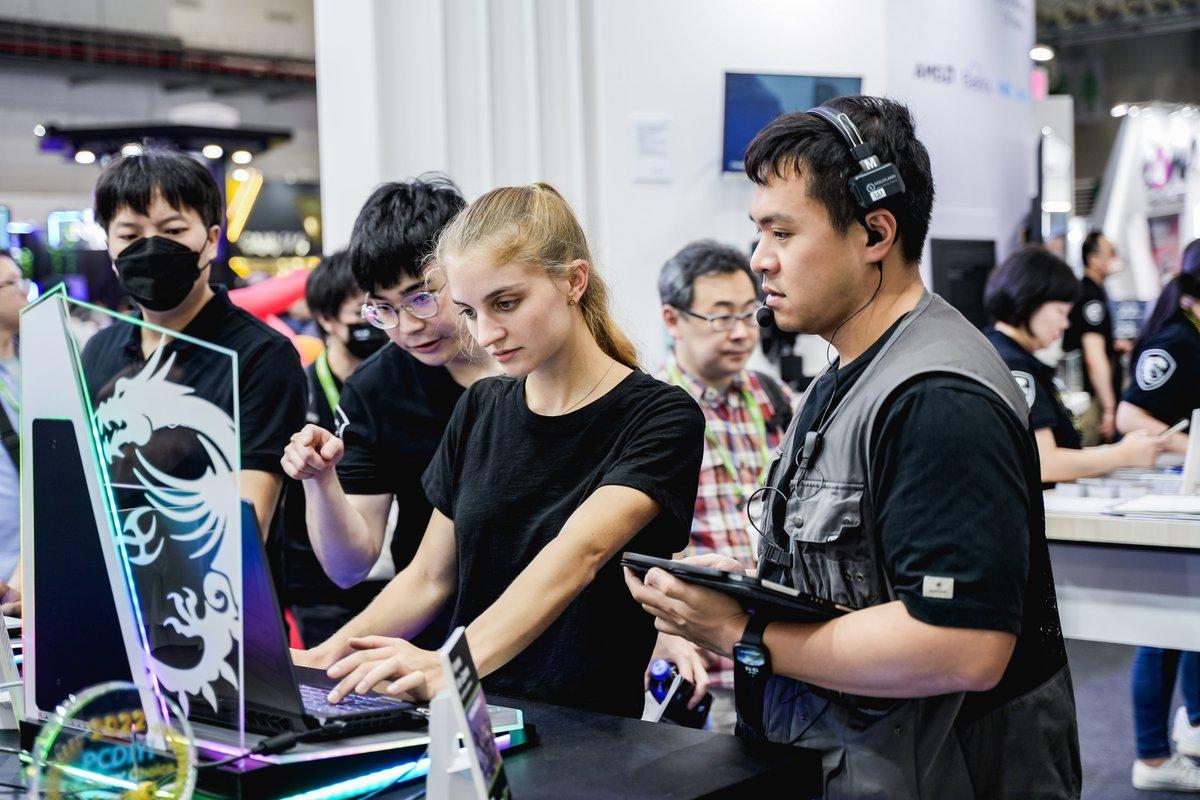With demand for on-site Mice (meetings, incentives, conferences and exhibitions) activities bouncing back after the pandemic, Asian nations are dusting off exhibition venues and ramping up marketing plans to welcome international visitors once again.
The response has been particularly vibrant in Northeast Asia, where South Korea's Busan is bidding for the World Expo 2030, while the Hong Kong government has unveiled the West Kowloon Cultural District, spanning more than 40 hectares to attract both leisure and Mice visitors.
In Taiwan, large-scale exhibitions have been bustling with growing numbers of participants, including at Computex last week, which has grown by 60% from the 2019 edition.
Exhibitors at Computex were able to meet buyers face-to-face for the first time in three years.
Jerchin Lee, executive director of the Taipei International Convention Center, said people wanted to connect with each other again following the pandemic.
Computex is expected to draw at least 30,000 foreign visitors this year from 126 countries, with around 1,000 exhibitors at the Taipei Nangang Exhibition Center.
In 2019, the value of Taiwan's Mice industry was US$15.6 billion, generated from 314,000 business travellers who joined 291 international conferences and 284 exhibitions in Taiwan.
Mr Lee, also a co-leader of the Meet Taiwan Project, the country's convention and visitors bureau, said Taiwan wanted to strengthen its Mice industry, but so does its neighbours.
The island does not want to compete with them, instead focusing on promoting itself as a preferred destination, he said.
While the three biggest exhibition centres in Thailand are owned by private companies, in Taiwan 80% of the venues have government investment and are operated by the Taiwan External Trade Development Council (TAITRA), a non-profit government co-sponsored trade promotion organisation.
Thailand can attract private investors because it is an enormous tourism market, especially among European visitors, said Mr Lee.
In Singapore, most venues are owned by private companies, but the government plays a crucial role in supporting their projects.
The Mice market in Taiwan is smaller and authorities had to initiate construction of venues in many key cities.
In addition to existing projects in Taipei and Kaohsiung, there are plans to open new exhibition centres in Taichung in the central region next year, followed by another project in Taoyuan.
PREFERRED DESTINATION
Rosa Liu, director of the Taiwan MICE Project Office under the Economic Affairs Ministry, said the country determined to promote itself as a destination, allowing it to attract visitors more effectively when they discover unique attractions, experiences and activities in Taiwan.
Instead of competing, Mrs Liu said Taiwan joined the Asia Convention Alliance in 2021 to create business-sharing and knowledge exchange with Thailand, Malaysia and Seoul.
She said as congresses or conventions normally rotate to a new location every year, there are equal opportunities for each destination to be the host.
In this partnership, Mrs Liu said the organisations can share knowledge on how to handle specific requirements to deliver impressive services.
For exhibitions, she said instead of cloning successful trade shows from Europe, most of the international shows in Taiwan are homegrown presentations as the country wants to showcase its key industries, such as semiconductor and ICT companies that earn top marks globally.
These events invite buyers from around the world to seal contracts with local enterprises.
"TAITRA manages more than 30 international exhibitions per year in various sectors. We create our own exhibitions to be platforms for local industries or manufacturers," said Mrs Liu.
She said strengths in medical services and technology also attract association meetings and congresses.

This year the Computex expo is expected to draw 30,000 foreign visitors from 126 countries.
NEW CITY
Grace Chen, deputy executive director of Nangang International Exhibition Center, said the average cost of venue rental in Taiwan ranks in the middle among 12 countries in Asia that have exhibition halls.
When compared with exhibition halls in Bangkok city centre, the average price in Taiwan can be less expensive, she said.
By having the city government invest in Mice facilities, the rental prices are the same rate across all sites in Taipei, including the biggest and newest centre -- the Taipei Nangang International Exhibition Center.
The Taipei World Trade Center has been operating for almost 40 years.
Mrs Chen said the Taipei city government not only developed the exhibition centres in Nangang to attract the Mice segment, but also encourages leading technology companies such as AMD and HP to set up offices in this area, which helps create a complete ecosystem.
Together with big hotel projects and shopping malls under construction, Nangang is expected to help relive congestion in the city centre, which has limited space left for new developments, she said.

